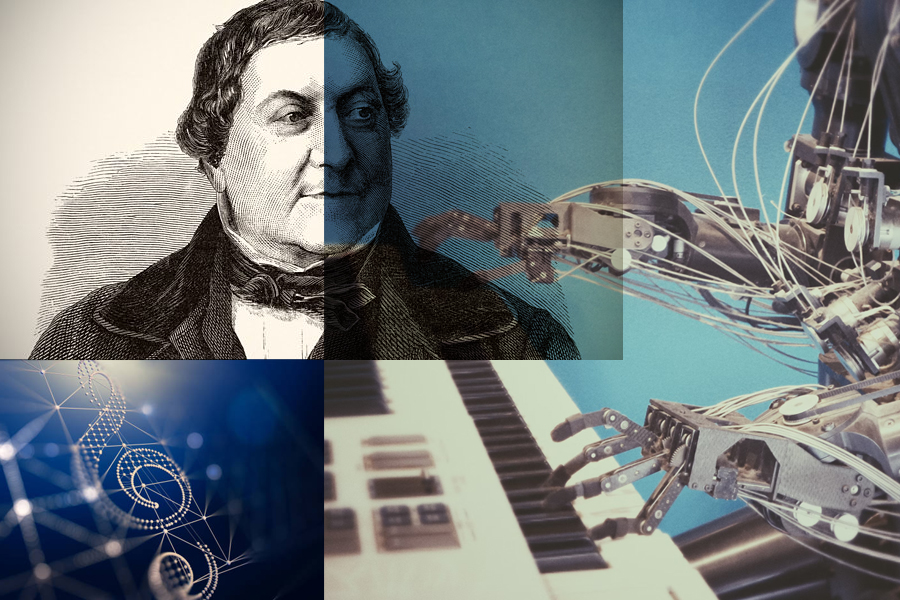AI COMPOSERS?
THE END IS NOT NEAR

What we can learn from past musical innovations.
By Janell Vircks, EP, In the Groove Music
Changes in the way music is composed, heard, sold or consumed has always been society’s most tender area of debate, after all everyone finds at least one deep connection to music throughout their life.
In 1816 Gioachino Rossini performed his new version of a Barber of Seville as the audience broke into a near riot heckling and throwing rotted cabbage at the composer in support of the original version by Paisiello. Beethoven’s 1st movement of his 3rd symphony, “Eroica” introduced the use of the 11th chord that bewildered and confused the crowd. In 1923, within three minutes of Antheil’s Sonata Savage, the audience broke into disorder with punches being thrown, one of them by artist Man Ray. In this same decade the saxophone was deemed “the Devil’s Instrument” as it’s seductive phrasing in American jazz lured young people to the dance floor to commingle. Imagine, musical innovation pushing people to the edge of their emotional control.
With the prominence of AI generated music composition threatening to take over our playlists and trick us into enjoying combinations of chords mathematically arranged into new songs, the world of listeners is once again set into panic. Are we as shocked as the critics were when they heard Harry Partch use the tones between the notes and make unequal intervals to rattle our small western/European scope of understanding?
With the threat of AI compositions seeping through our earbuds will we shutter our windows and cage in our teenagers like the greatest generation did, shielding their boomer offspring from the evils of distortion? One thing is for sure, I sleep better at night knowing that Whitney Huston’s “I Will Always Love You” was not tainted by Auto-Tune.
I’m not an expert in AI, and I’m not even and expert in music composition but I am an industry veteran, and when it comes to knowing what type of music advertising will thoroughly enjoy attaching to brands, I can see my crystal ball blinking “It Is Not About The Process, It Is Only The End Result”.
As the 1970’s hip-hop DJ’s shocked us by taking our beloved soul, funk and jazz samples to the streets the world did not end, and when the first 808 appeared with Hello Magic Orchestra all the drummers of the world did not disappear. Shortly after that, the S900 Sampler brought in looping that spawned a brand new sound from Dr. Dre to Portishead. We surely did not see that coming and somehow we adapted.
Today, sampled orchestras dominate our songs, free beats, voices and guitar licks are stitched together in millions of teen bedrooms as I write this. Diversity alone has had a profound impact on the sounds and rhythms we hear while dancing in our kitchens.
It is completely human to fear the unknown and when it comes to neural networks composing our next big hit my anxiety is off the charts but I need to remind myself that human civilization has been through countless musical innovation experiments and I have hopes that we will survive this one. It is now up to the music buyers, the end users, to determine what they will consider acceptable. A watermarked composition made by a feeling, breathing human, full of earnest expression, hoping to make a career in music? Or will the cheaper and faster model dominate the end result, skipping over the emotional ingredient and just get right to the juicy hook?
Until this all sorts out I’ll rest easy knowing that there are still new synths, sample manipulations and noises that we have yet to hear, perhaps keeping the robots one step behind creative humans. My well worn cardboard “the end is near” sign is sitting in the corner of the room while the playlist goes on.
Minneapolis Office
625 2nd Avenue South Suite 102
Minneapolis, MN 55402
PHONE
612.305.1229
